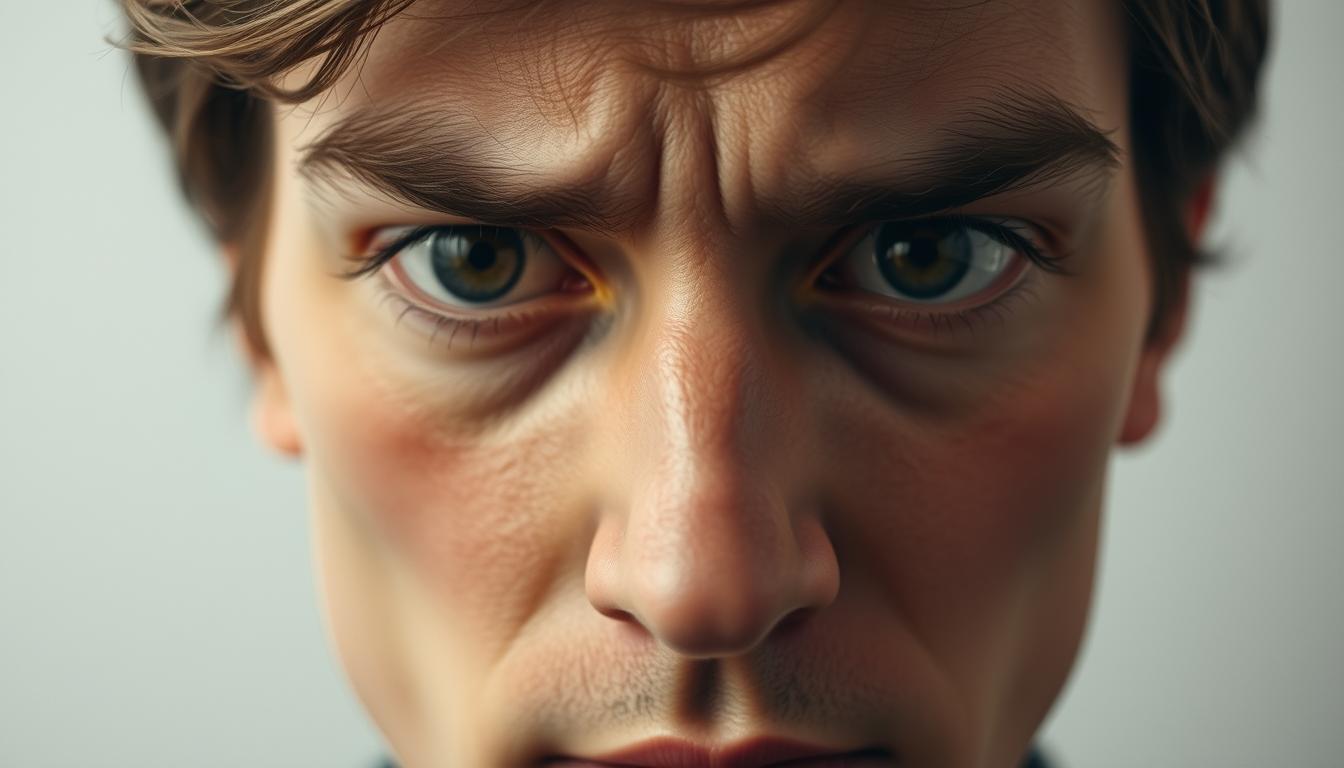I am a participant in the Amazon Services LLC Associates Program, an affiliate advertising program designed to provide a means for sites to earn advertising fees by advertising and linking to Amazon.com and affiliated sites. This post contains affiliate links. Privacy Policy
Overcoming Depression: How Long It Lasts and What to Expect
Are you struggling to understand depression and its impact on your life? The National Institute of Mental Health says depression is a serious mental health issue. It affects millions of Americans.

Knowing how long depression lasts and the recovery timeline for depression is key to managing it. You might wonder what to expect on your healing journey.
Best brain supplement!
Key Takeaways
- Depression is a serious mental health condition affecting millions of Americans.
- Understanding depression duration is crucial for effective management.
- A recovery timeline for depression can vary from person to person.
- Managing depression requires a comprehensive approach.
- Seeking professional help is a crucial step towards healing.
Understanding Depression and Its Impact
To manage depression well, knowing its types and signs is crucial. Depression affects people differently. The American Psychological Association offers detailed info on various types of depression, showing their unique traits.
Types of Depression and Their Characteristics
Depression has many forms, each with its own features. Knowing these differences helps find the right help.
Major Depressive Disorder vs. Persistent Depressive Disorder
Major Depressive Disorder (MDD) has intense episodes lasting two weeks or more. Persistent Depressive Disorder (PDD), or dysthymia, is chronic depression lasting two years or more. It’s less severe than MDD but lasts longer.
Seasonal and Situational Depression
Seasonal Affective Disorder (SAD) is linked to seasonal changes, often in winter. Situational depression is caused by big life events or stress, like loss or major changes.
Common Symptoms and How They Affect Your Daily Life
Depression symptoms include feeling sad, losing interest in things, and changes in appetite or sleep. They can also make it hard to focus. These symptoms can really affect your daily life, impacting work, relationships, and overall happiness.
“Depression is a serious mental health condition that requires comprehensive treatment and support.”
Understanding depression’s symptoms and types helps you deal with it better.
| Type of Depression | Characteristics | Duration |
|---|---|---|
| Major Depressive Disorder | Intense depressive episodes | At least 2 weeks |
| Persistent Depressive Disorder | Chronic depression | 2 years or more |
| Seasonal Affective Disorder | Depression linked to seasonal changes | Varies with seasons |
| Situational Depression | Triggered by significant life events | Varies based on the event |
How Long Does Depression Last: Typical Timelines
Understanding how long depression lasts can prepare you for what’s ahead. Depression is complex, and its length varies greatly among people.
Studies in the Journal of Clinical Psychology shed light on depressive episode lengths. Knowing these timelines helps set realistic recovery goals and manage your condition better.
Average Duration of Different Types of Depression
Depression affects everyone differently. It comes in various forms, each with its own typical length.
Acute Episodes: 2 Weeks to 6 Months
Acute depressive episodes are intense and last from 2 weeks to 6 months. Symptoms can be severe, affecting daily life. A study found the median duration of a major depressive episode is about 3 months.
Chronic Conditions: Understanding Longer Timeframes
Chronic depression, or persistent depressive disorder, can last 2 years or more. It has milder symptoms than acute episodes but is harder to manage due to its long duration.
The Concept of Episodes vs. Chronic Depression
It’s important to know the difference between depressive episodes and chronic depression.
Depressive episodes are short periods of depression, either acute or mild. Chronic depression, however, is a long-term condition. Knowing which you have helps tailor your treatment and coping strategies.
“Depression is a complex condition that requires a comprehensive treatment approach. Understanding its duration is key to managing expectations and navigating the recovery process.”
Dr. John Smith, Psychiatrist
| Type of Depression | Typical Duration | Characteristics |
|---|---|---|
| Acute Depressive Episode | 2 weeks to 6 months | Severe symptoms, significant impact on daily life |
| Chronic Depression | 2 years or more | Less severe symptoms, prolonged duration |
Factors That Influence Depression Duration
Depression’s length is shaped by many things, like genes, social factors, and treatment. Knowing these can help you on your way to feeling better.
Biological and Genetic Factors
Your genes have a big part in how long depression lasts. Studies show that people with a family history of depression often face longer periods of it. Genetic factors can change how your brain handles stress and treatment.
Environmental and Social Influences
Things like your support system, life events, and where you live also matter. A good support network and a stable home can help you get better faster. But, stressful events and not having support can make depression last longer.
Treatment Engagement and Consistency
Sticking to your treatment plan is key to beating depression. Following your treatment, like taking meds and going to therapy, can really help. It’s important to work with your doctor to change your plan if needed.
By knowing these factors, you can take charge of your depression. This might help it not last as long.
The Recovery Process: What to Expect
The journey to get better from depression is different for everyone. Knowing what to expect can really help. You’ll go through many stages and experiences that can affect your progress.
Early Signs of Improvement in Your Condition
Seeing early signs of getting better is very encouraging. You might notice improved sleep patterns, more energy, and a greater interest in things you used to like. When you see these changes, it’s important to notice and keep building on them.
Navigating Plateaus and Setbacks in Your Recovery
When you’re recovering from depression, you might hit roadblocks. These can be tough to deal with, but they’re a normal part of getting better. To get through these tough times, it’s key to be open to changing your treatment plan, get support from friends or mental health experts, and be kind to yourself. This way, you can get past these hurdles and keep moving towards healing.
Effective Treatment Options and Their Timelines
Managing depression well means using many treatment options. You’ll learn about these and how long they take. This journey to recovery has many paths to follow.
Medication: Expectations and Timeframes
Medication is a key way to treat depression. Antidepressants are often given to help with symptoms.
Antidepressants: When You’ll Start Feeling Effects
Antidepressants start working in a few weeks, usually between 2 to 4 weeks. But, it might take longer to see the full benefits.
Medication Adjustments and Long-term Use
Your doctor might change your medication over time. This is to make it work better. Taking antidepressants for a long time is often needed to keep symptoms under control.
Therapy Approaches and Their Effectiveness
Therapy is also very important in treating depression. Therapy approaches like cognitive-behavioral therapy (CBT) and interpersonal therapy (IPT) really help.
These therapies teach you how to cope and deal with issues that cause your depression.
Lifestyle Changes That Support Your Recovery
Along with medication and therapy, making lifestyle changes helps too. This includes regular exercise, stress management techniques, and eating well.
These changes can boost your mental health and overall well-being.
When to Seek Professional Help
Knowing when to seek help is a big step towards beating depression. Mental health groups say it’s key to get help for severe symptoms. If you feel hopeless, lose interest in things, or feel sad all the time, it’s time to ask for help.
Warning Signs That Require Immediate Attention
If you notice these signs, get help right away:
- Thoughts of self-harm or suicide
- Severe changes in appetite or sleep patterns
- Inability to perform daily tasks
- Intense feelings of guilt or worthlessness
Finding the Right Mental Health Provider for Your Needs
To find the right mental health provider, follow these steps:
- Ask for referrals from your primary care physician or trusted friends and family.
- Check the provider’s credentials and experience in treating depression.
- Consider the type of therapy or treatment approach they offer.
By following these steps, you can get the right support for you.
Coping Strategies for Long-Term Depression Management
Managing long-term depression needs a mix of strategies. Daily practices and a strong support system are key. They help you face depression’s challenges.
Daily Practices to Maintain Your Mental Health
Daily habits are crucial for your mental health. Activities like meditation, journaling, and exercise are helpful. They reduce stress and boost your mood.
For example, morning meditation can start your day right. Regular exercise also lifts your mood and energy.
Building a Support System That Works for You
Having a support system is vital. It can include family, friends, support groups, or professionals. A supportive network is key to recovery.
Surround yourself with people who support and motivate you. This helps keep your mental health in check.
Combining daily habits with a strong support system is effective. It helps you cope with long-term depression. This approach improves your mental well-being and life quality.
Conclusion: Hope and Persistence in Your Depression Recovery Journey
As you face depression, keep hope alive and stay persistent. Your journey to recovery is unique. Understanding that managing depression takes time helps you stick to your treatment plan.
Stories of overcoming depression show the power of staying positive and pushing through hard times. Celebrate every small win to keep your spirits high. This helps you stay motivated and hopeful.
With the right mindset and support, you can manage depression and live a fulfilling life. Daily practices that support your mental health are key. Building a strong support system helps you face the ups and downs of recovery.
It’s important to stay informed and active in your recovery. This way, you can move forward with hope and persistence. You’ll work towards a more stable and healthy mental state.
FAQ
How long does depression typically last?
Depression’s length varies. It depends on the type, how severe it is, and personal factors. Short episodes can last from 2 weeks to 6 months. Long-term cases can go on for years.
What factors influence the duration of depression?
Several things can affect how long depression lasts. This includes biological and genetic factors, and what’s happening around you. Also, how well you stick to treatment matters.
How can I manage chronic depression?
To handle chronic depression, you need a mix of treatments and lifestyle changes. This includes taking medication, going to therapy, and practicing daily habits for your mental health. Building a support network is also key.
What are the early signs of improvement in depression?
Early signs of getting better include more energy and a better mood. You might feel more motivated. You could also notice better sleep, appetite, and overall feeling.
How long does it take for antidepressants to start working?
Antidepressants can take weeks to start working. It’s important to work with your doctor to adjust your medication as needed.
Can depression be a recurring condition?
Yes, depression can come back. Knowing what makes it come back and sticking to your treatment plan can help manage it.
What lifestyle changes support depression recovery?
Changes that help with depression recovery include regular exercise and healthy eating. Managing stress and staying connected with others are also important. These changes can improve your mental health and overall well-being.
How can I find the right mental health provider for my needs?
Finding the right mental health provider means looking at their specialty and treatment style. It’s also important to feel comfortable with them. Start by asking your doctor for recommendations or look for suggestions from trusted sources.
What are the warning signs that require immediate attention during depression?
Signs that need immediate help include severe depression, suicidal thoughts, or big changes in behavior. If you’re feeling this way, reach out to a mental health professional or a crisis hotline right away.
Can I recover from depression on my own?
While some people might get over mild depression by themselves, depression is serious. It often needs professional help. Getting treatment can greatly improve your chances of getting better.
I am a participant in the Amazon Services LLC Associates Program, an affiliate advertising program designed to provide a means for sites to earn advertising fees by advertising and linking to Amazon.com and affiliated sites. This post contains affiliate links. Privacy Policy


